
How to stay sustainable with paper products
Have you thought about how sustainable your paper home products are? While the use of single-use plastics has (rightfully) been criticized, some products are made to be single-use - like toilet paper, paper towels, and napkins. With these products, it’s best to examine sustainability by looking at what goes into their production.
While recycled paper is still a worthy alternative to ‘fresh’ paper - reducing or repurposing waste is always a good thing - it’s not guilt-free. Because recycled paper can contain receipts, tickets, food wrappers, and similar materials, BPA plastics show up in many of these products.
Of course, the Co-op works hard to get the most sustainable products on the shelves so you don’t have to spend hours researching. The two most sustainable ‘paper’ materials for hygiene products are bamboo and sugarcane.
Bamboo is grown around the world; kids can usually identify it because of its association with pandas. (Don’t worry - industrial bamboo is a different species that is not taking away a panda’s next meal!) What makes bamboo so sustainable? First, rate of growth: bamboo can grow between a foot and 3.5 feet a day! That’s partly because bamboo is actually a grass, not a tree. Compare that to an oak tree that grows 12” annually. On a large scale, an Agriculture Department study found that bamboo produced 14 tons of fiber an acre, compared to 8 tons for loblolly pine.
Additionally, bamboo is known for producing more oxygen than most trees, and sequestering more carbon - so it can be argued that bamboo products are doing more for the environment than traditional lumber/paper sources.
The Co-op carries Bim Bam Boo bamboo toilet paper, and NatureZway’s bamboo paper towels and toilet paper.
Sugarcane is quickly becoming a sustainable alternative to traditional lumber, as well. Like bamboo, it’s a grass, not a tree, so it grows rapidly and re-grows within 3-4 months after harvest.
While not as visually recognizable as bamboo, most of us are familiar with sugarcane’s typical usage: to create sugar. But after that sugarcane juice is squeezed out, very high quality fiber is left behind - usually destined for the landfill or burning. But instead, this fiber is being repurposed for processing into paper products. How’s that for Zero Waste?
Most of the sugarcane paper products carried by the Co-op are mixes with bamboo, like Ecos toilet paper and paper towels. You can also find Ultra Green napkins, made entirely of sugarcane fiber.
More Co-op News
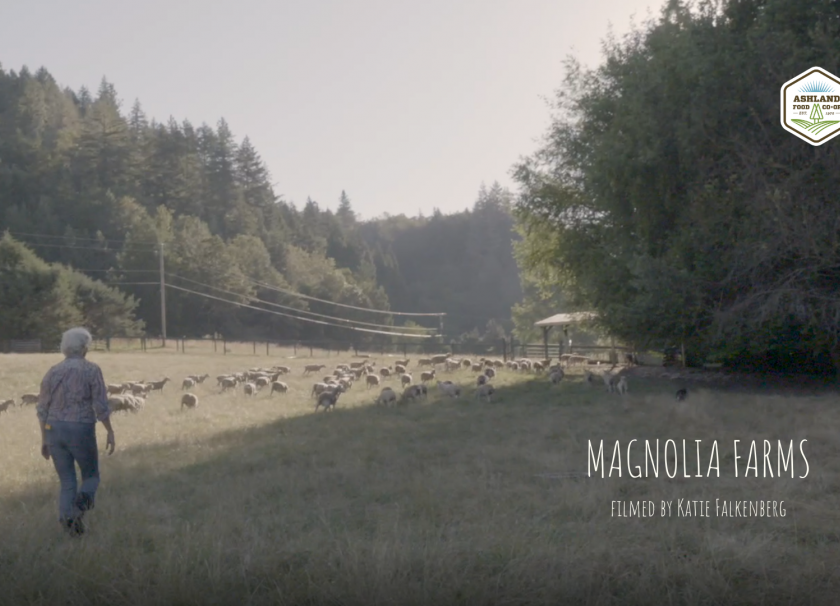
A Visit with Magnolia Farms
Visit Magnolia Farms and learn more about owner Elissa Thau, who the Ashland Food Co-op is so honored to partner with for more than twenty years.
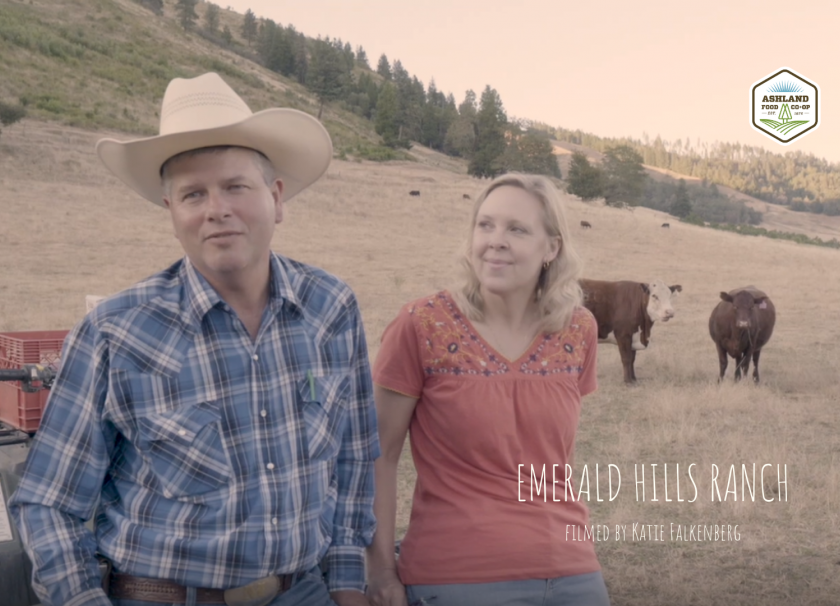
A Visit with Emerald Hills
Visit the Emerald Hills Ranch and learn more about this fourth generation ranching family that the Ashland Food Co-op is so proud to partner with for more than twenty years.
A Conversation with Katie Falkenberg, Photographer and Filmmaker
Katie Falkenberg's photography and filmmaking has taken her all over the world, and lucky for us - she's been calling the Rogue Valley home for a couple years now. Exquisitely and harmoniously capturing the world around her, she is documenting not only through the lens but also through her peaceful and loving spirit. Katie reached out to us in hopes of collaborating after falling in love with the co-op soon after moving here.
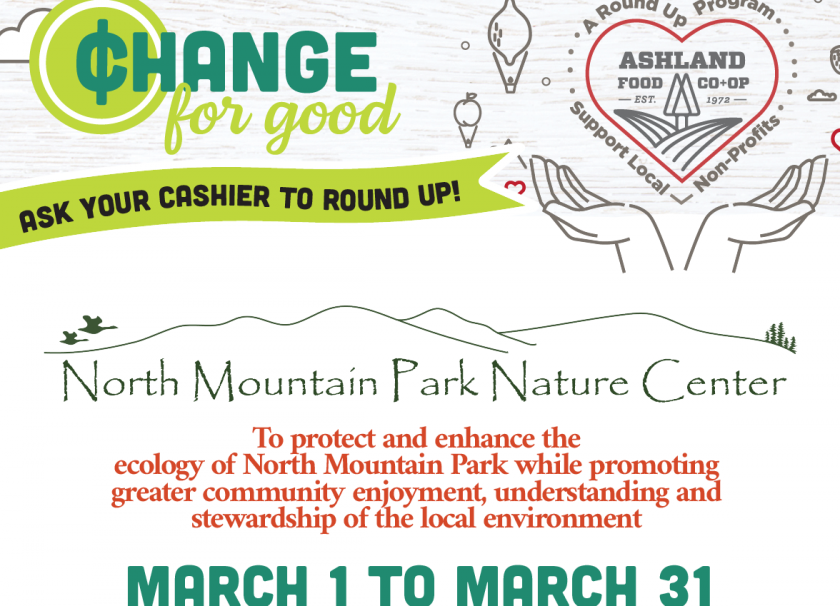
March Change for Good Recipient: North Mountain Park Nature Center
March's Change for Good Recipient is
North Mountain Park Nature Center,
a division of Ashland Parks and Recreation, that encompasses demonstration gardens, a nature playground, and approximately 14 acres of Natural Area that is managed for wildlife preservation and public education.

February Change for Good Recipient: Ashland High Arts Advocates
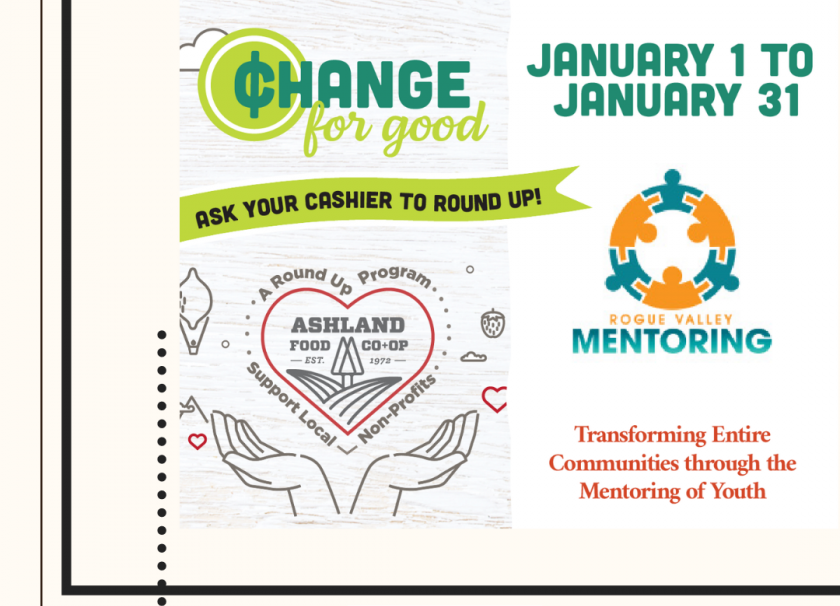
January Change for Good Recipient: Rogue Valley Mentoring
Since 2005, Rogue Valley Mentoring (formerly the Rose Circle Mentoring Network) has trained over 500 adults who have mentored over 2,000 youth in our valley; letting young people know that they are not alone. A caring and compassionate ear shows them that they matter, and they they are experts of their own experience.

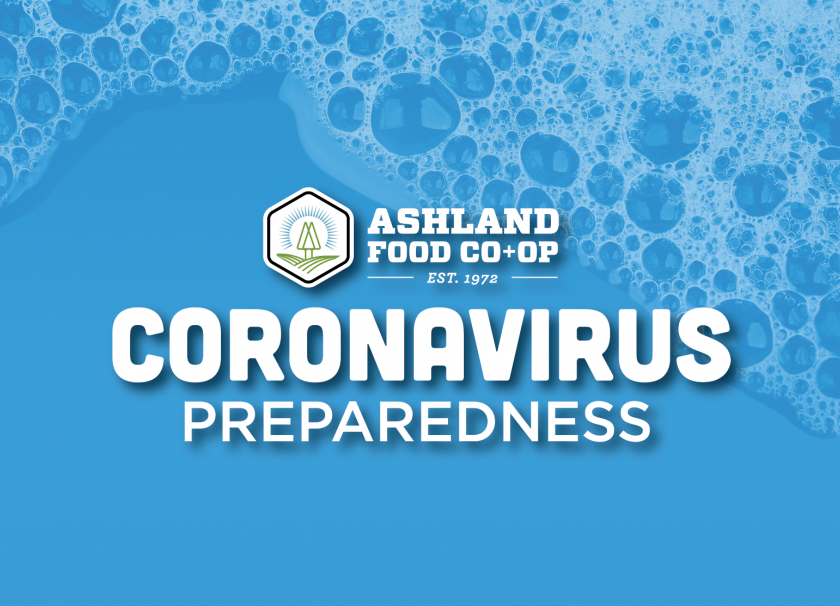
Coronavirus Preparedness at the Co-op
Update as of March 15th, 2022: Oregon Health Authority no longer requires face coverings to be worn in all public indoor settings.

Shopping Safely & Efficiently
As coronavirus cases increase in Jackson County, the Co-op is taking extra precautions to protect shoppers and employees.
To ensure social distancing in the store, the number of persons allowed in the store at once has been reduced to 50% capacity. Understandably, this may lead to a short wait outside of the store, but please be assured the line moves quickly.
In order to keep the wait as short as possible, here are a few steps you can take to help out:

10 Ways to Shine Your Light in Dark Times
By Allan Weisbard L.C.S.W.
Since 1963, autumn has been a difficult time for me. Two months shy of my 13th birthday I lost my younger brother to cancer, then shortly afterwards, President Kennedy was assassinated.
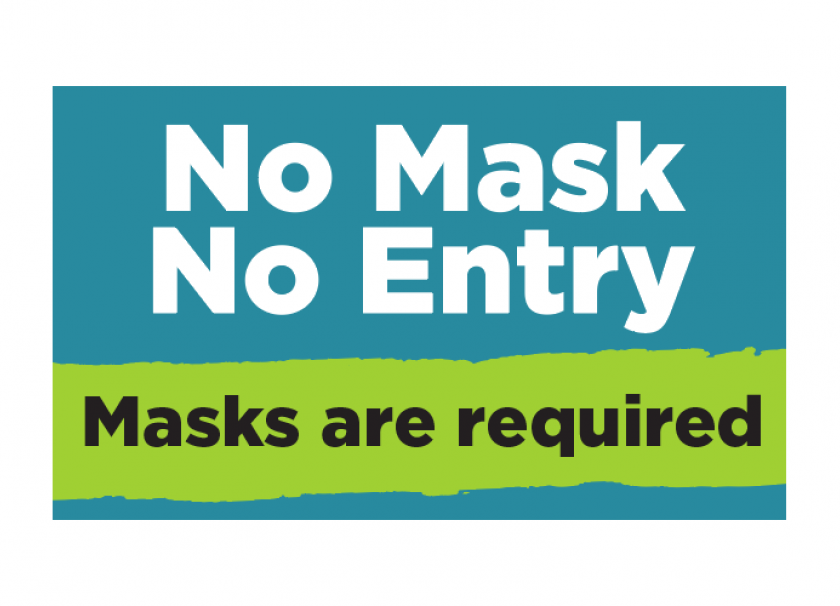
Masks Required for All In-Store Shoppers
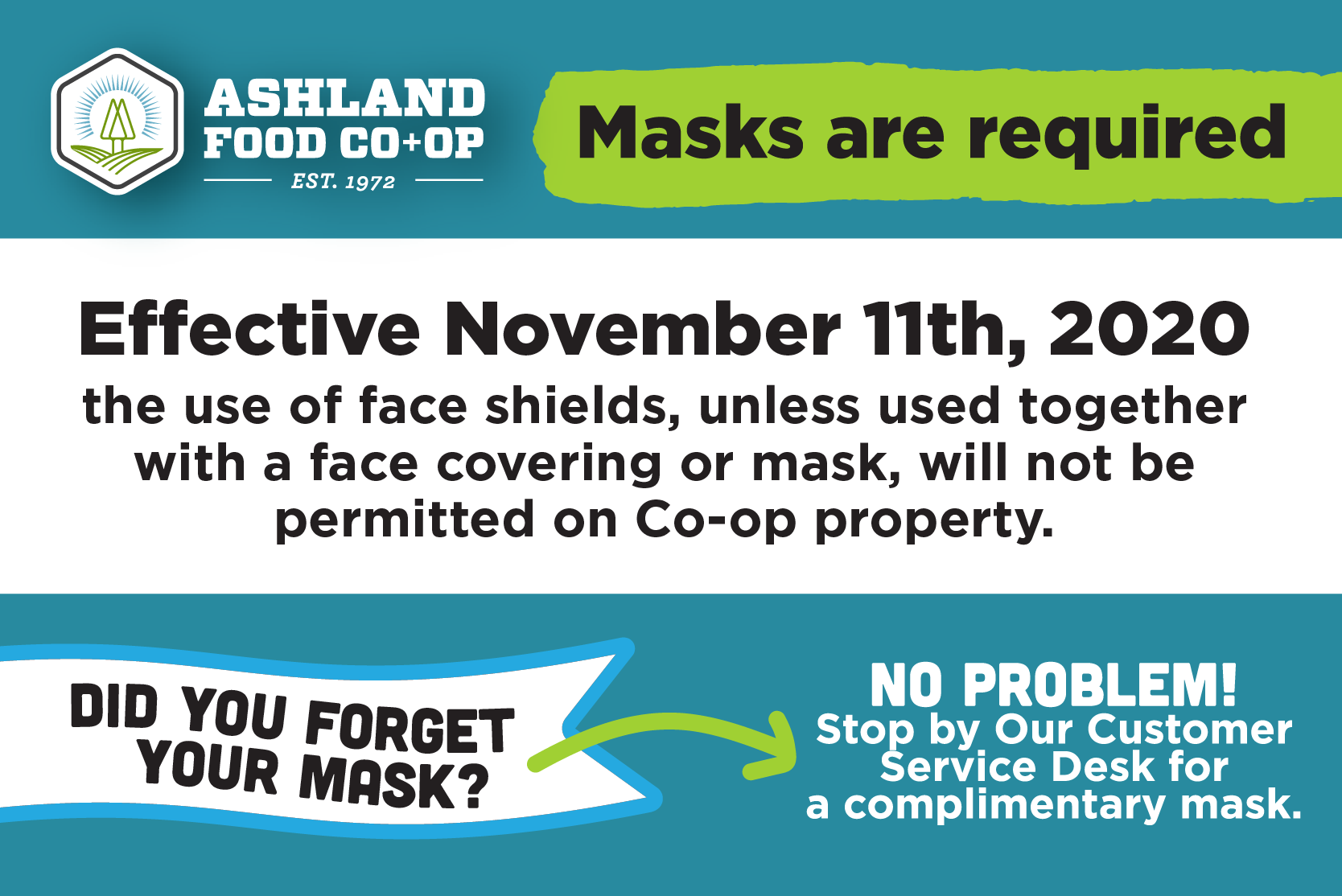
To protect the health of Co-op staff and shoppers, all shoppers and other visitors on Ashland Food Co-op property must wear face coverings over mouth and nose except when dining in an approved area. As of November 11, 2020, face shields will not be permitted unless worn with a mask.
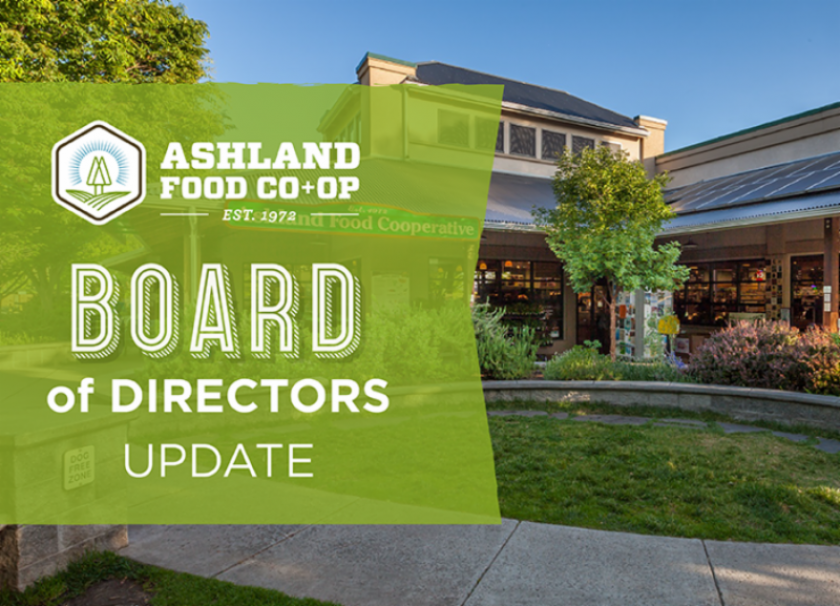
From the Board: Co-ops Look in the Mirror
By Annie Hoy, Board Secretary and Chair of Owner Engagement Committee
Food Co-ops around the nation proudly display signage saying EVERYONE WELCOME. Or they use the slogan, “Anyone can shop. Anyone can join.” But are food co-ops, and other cooperative businesses, walking the walk?

November/December GM Update: Overcoming Challenges
It’s probably already cliche to say “it’s been one heck of a year.” There have been challenges a-plenty for all of us, whether we’re working or shopping at the Co-op - but I’m so proud of how all of us have persevered.

End of year wrap-up on Strategic Energy Management at the Co-op
Hi there. I hope this finds you well. It’s me, Nina Friedman, Strategic Energy Management (SEM) intern for the Ashland Food Co-op. The global and local crises have only devolved into further chaos since we last spoke. As we sit with the reality of coworkers, neighbors, and friends who’ve lost their homes and businesses to the recent fires, and thousands more across the nation losing their loved ones to COVID-19, I imagine many are feeling frozen and powerless to help those that are suffering.
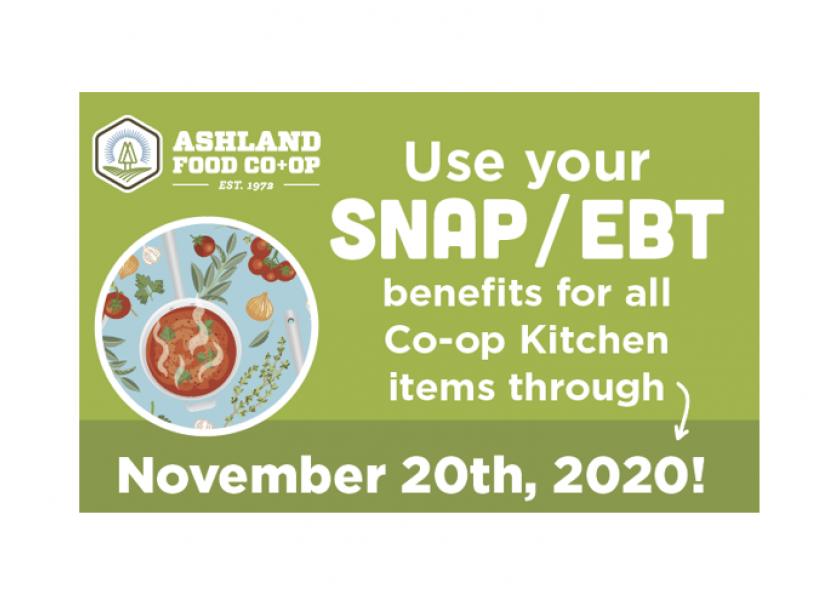
SNAP in the Co-op Kitchen and Thanksgiving
Use your SNAP EBT benefits for all Co-op Kitchen items through November 20th, 2020!
Recognizing the difficulties in food preparation for families who lost their homes in the local wildfires, the State of Oregon has expanded SNAP benefits to be used for hot foods, like made-to-order and hot bar meals from the Co-op Kitchen, through November 20.
And starting on November 16, you can get an early taste of Thanksgiving as the Co-op Kitchen hot bar rolls out the full Thanksgiving spread.

Black Lives Matter
We acknowledge that the Ashland Food Co-op has not had a culture where all employees and community members felt safe sharing their experiences of discrimination in our store. We apologize for this. We are on a learning journey. We have reached out for help, and are listening to our Black, Indigenous and People of Color (BIPOC) employees and owners who want to be part of the positive change we seek.
* * * * *
